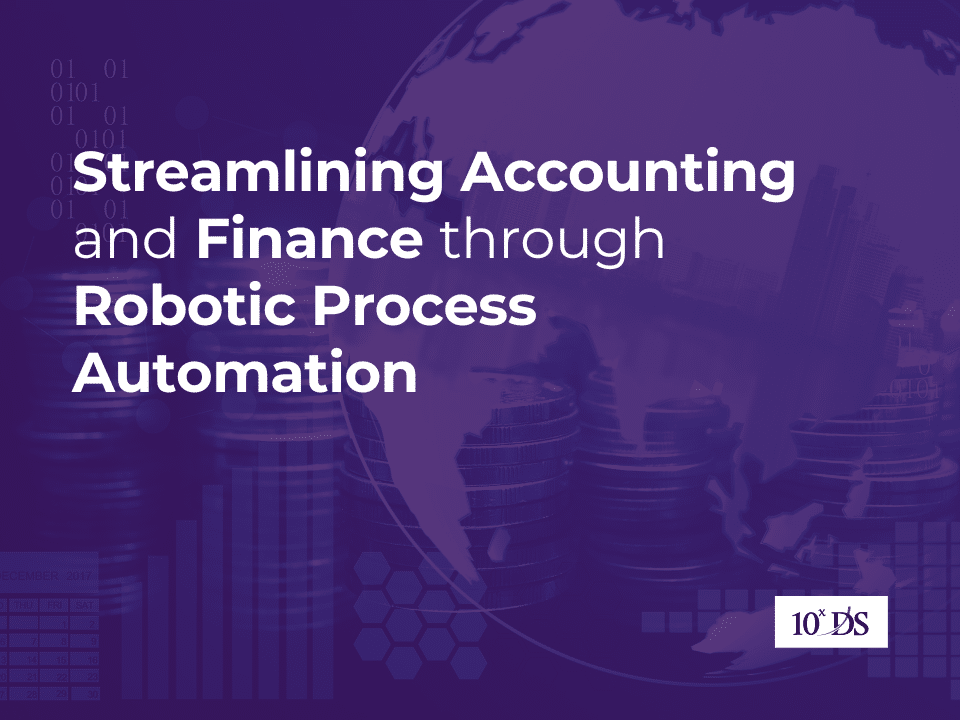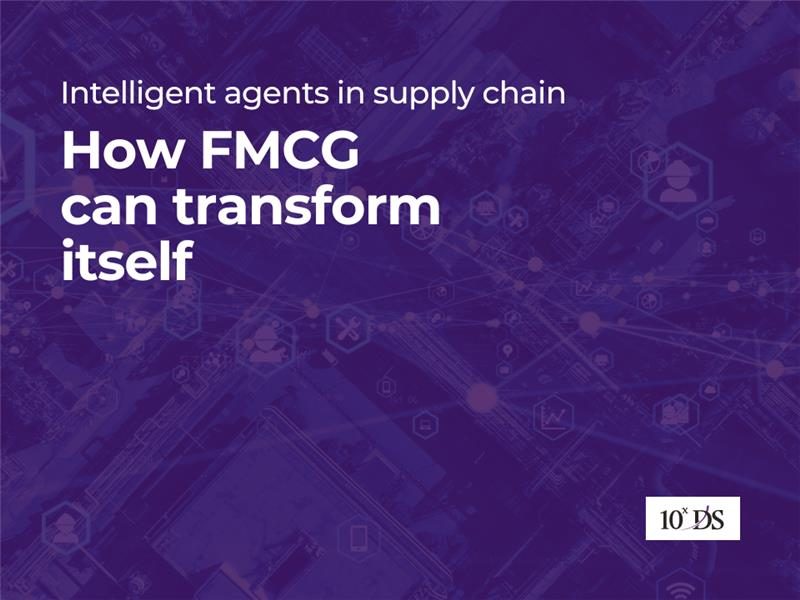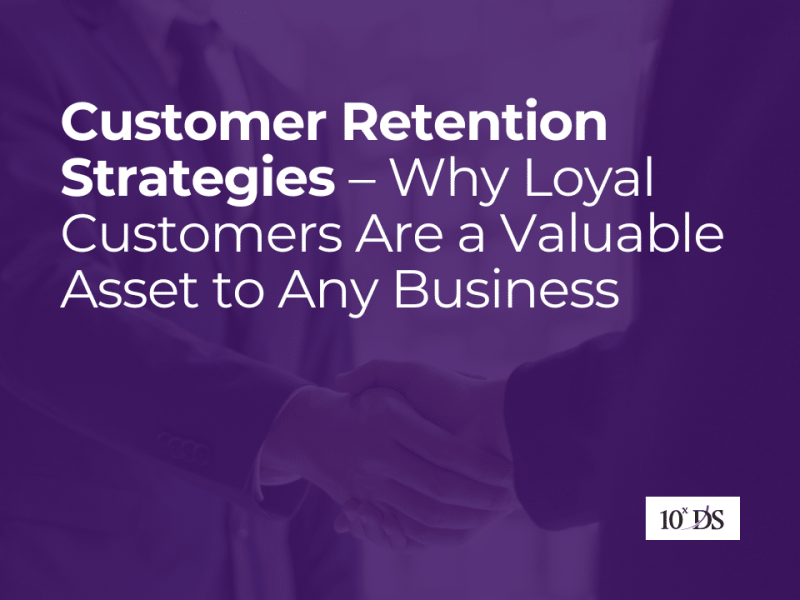
Streamlining Accounting and Finance through Robotic Process Automation
What does Robotic Process Automation (RPA) have to contribute to the inevitable cubicle of all business organisation – The Accounting and Finance department. As we know, accountants rely on computer-dependent tools and processes that involve numerous manual steps and keystrokes. RPA has introduced a new era of efficiency and precision in this field. It shines as a transformative tool revolutionizing task execution and management within these domains. According to a Deloitte survey, 53% of global enterprises have already started their RPA journey. If RPA growth trend continues, RPA will achieve near universal adoption in 5 years. Certainly, leveraging accounting automation via RPA will enable your organization to navigate present transformations and excel in challenging conditions.
While RPA holds significance, it’s just one facet in a spectrum of digitization possibilities crucial for Accounting and Finance. Known as “AAA possibilities” (Automation, Analytics, and AI), these avenues reshape traditional practices. Automation, including RPA, streamlines tasks like data entry and report generation, while Workflow Automation standardizes processes, reducing errors. Document Management Systems digitize document handling, cutting paper-based inefficiencies. Analytics, encompassing Big Data and Predictive Analytics, enhances decision-making and forecasts financial trends. AI introduces Machine Learning for anomaly detection, NLP for language tasks, and predictive models for accurate forecasts. Cloud Solutions offer real-time data access and cost-effective management. Digital Payment Solutions streamline transactions, emphasizing user-friendly options.
For those who are still new to the term RPA; it involves the use of specialized software or “bots” to automate repetitive, rule-based tasks within accounting and finance processes. These bots mimic human actions by interacting with various software applications, handling data, performing calculations, and more. What sets RPA apart is its ability to work tirelessly, error-free, and at a significantly faster pace compared to humans.
Let us find the possible benefits of RPA in Accounting and Finance with the back of possible use cases.
Enhanced Accuracy and Compliance
RPA significantly reduces the margin for human error in mundane tasks like data entry, ensuring a higher level of accuracy and compliance with regulatory standards. This precision is crucial in financial reporting, reducing the risk of costly mistakes.
Increased Efficiency and Productivity
By automating repetitive tasks such as invoice processing, reconciliations, and data validation, RPA allows finance professionals to focus on more complex and strategic activities. This boosts overall productivity and efficiency within the organization.
Cost Savings
The implementation of RPA leads to cost savings by minimizing the need for manual intervention. With fewer errors and quicker processing times, organizations can streamline their operations, leading to reduced operational costs.
Scalability and Flexibility
RPA systems are highly scalable and adaptable. They can be easily adjusted or expanded to accommodate increased workload or changes in processes, making them ideal for the evolving demands of accounting and finance.
Confronting challenges such as labour shortages, service delivery demands, regulatory compliance complexities, and robust data governance requires strategic solutions. CEOs and managers can mitigate labour shortages by adopting RPA in accounting, redirecting valuable human resources to vital tasks. Integrating RPA streamlines time-consuming operations, enhancing service delivery and customer experience. Additionally, RPA ensures consistent adherence to global standards, reducing the risk of non-compliance, and fortifies data governance by extracting sensitive data securely, mitigating potential breaches. RPA bots play a pivotal role in automating data extraction from emails and other sources, reinforcing stringent data governance measures for heightened security and confidentiality. This strategic integration of RPA offers a comprehensive approach to address multifaceted challenges, empowering organizations to navigate the evolving business landscape effectively.
Use Cases
Invoice Processing
Timely execution, accuracy, and consistency are imperative in invoice processing, as manual handling often results in operational delays within accounts payable. RPA offers a solution by efficiently managing tasks like invoice validation, extraction (utilizing optical character recognition), and processing.
For example: 10xDS aided in overhauling the invoice reconciliation process to boost productivity, improve cash flow, and address a substantial backlog of invoices awaiting processing for a prominent in-flight catering firm. Click the link for demo video on similar case studies RPA Solution for Invoice Reconciliation process | Watch Demo (10xds.com)
Vendor payment automation
Another prominent case to look upon in finance process automation is the Vendor payment automation. The 10xDS team designed and implemented the solution to handle all the invoices from multiple vendors. The solution significantly improved the turnaround time, enhancing process control and compliance.
Click the link for details Streamline Vendor Payments using RPA – Case Study | 10xDS
Accounts Reconciliation
Leveraging RPA enables the automation of Accounts Receivable procedures, encompassing tasks like customer data setup and management, data extraction, sales quotation, as well as invoice generation and distribution. Robust RPA solutions play a pivotal role in enhancing cash flow and eradicating cash gaps. These solutions collect data from diverse sources and conduct automated data entry, eliminating the necessity for accountants to juggle multiple information systems. Moreover, RPA bots excel in reconciling accounts by cross-verifying data across various systems, promptly identifying discrepancies, and taking corrective actions, thereby elevating the precision of financial records.
Payroll Processing
Employee payroll management encompasses various labour-intensive tasks like data extraction, timesheet validation, payment scheduling, and deduction calculations, including the verification of employee information from diverse systems, such as sick days and expenses. To avert payment inaccuracies and delays, leveraging RPA for payroll automation is recommended. Reliable RPA bots excel in data extraction from multiple sources and ensure precise calculations for deductions and bonuses, guaranteeing 100% accuracy while meeting tax compliance requirements.
Financial Reporting, Planning, and Forecasting
RPA automates the time-consuming process of updating profit and loss reports, generating balance sheets, income statements, and performing variance analysis. Leveraging historical data, RPA improves financial planning and forecasting accuracy, ensuring real-time, transparent reporting.
Intercompany Reconciliations (ICR)
Using RPA simplifies reconciliations by automating data entry, extraction, cross-checking, and flagging discrepancies. Bots streamline the process by gathering transactional data and automating document matching, email communication, and journal entry creation for accurate financial statements.
Tax Compliance
RPA, combined with tax compliance software, efficiently handles data gathering for tax liability, updating tax workbooks, and preparing and submitting tax reports. Utilizing RPA minimizes compliance risks and saves time while ensuring adherence to various state and federal tax regulations.
Inventory Management and Accounting
RPA streamlines inventory management by monitoring levels, forecasting, and automating stock orders. For inventory accounting, RPA facilitates data extraction and entry into financial records, enabling improved lead times, reduced stock-outs, and optimized storage costs for retail companies, particularly vital in today’s challenging supply chain environment.
Embracing the Future of Accounting and Finance with RPA
In embracing the future of Accounting and Finance, the transformative power of digitization stands as a beacon of innovation and progress. Through Automation, Analytics, and Artificial Intelligence (AI), organizations witness a metamorphosis in traditional practices, paving the way for enhanced efficiency, accuracy, and strategic decision-making. Whether it’s streamlining processes with Robotic Process Automation (RPA), harnessing the predictive capabilities of Analytics, or leveraging AI’s cognitive abilities, each facet propels these domains toward a dynamic future. Embracing digitization not only optimizes operations but also empowers organizations to navigate complexities, seize opportunities, and thrive in an ever-evolving business landscape. This forward-thinking approach ensures that Accounting and Finance remain at the forefront of technological advancement, poised to deliver value, insight, and resilience in the years ahead.
Talk to our Experts to learn more


